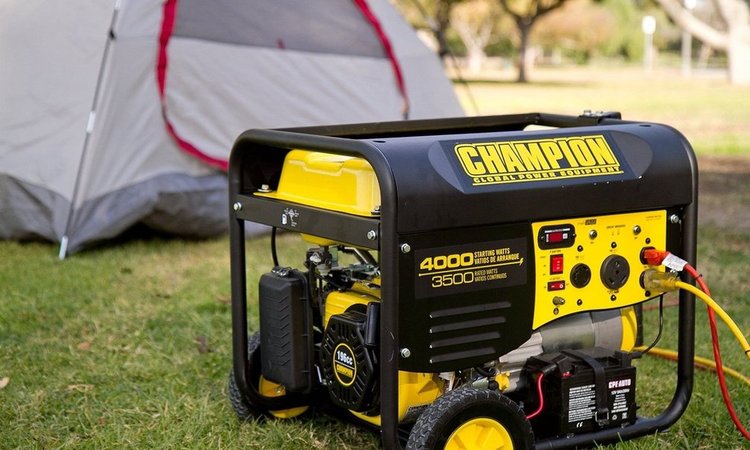Which Generator Is Best for Home Use?
Homeowners wishing to have electricity in case of a power outage can certainly appreciate the value of a reliable generator.
Whether you wish to use it in the event of an emergency or as an alternative power source for work or recreational purposes, your portable power supply comes in a variety of models and styles. But which is the best for home use?
Manufacturers propose a bountiful range of generators, but some might not live up to your expectations. Wondering which generator is best for use in the home? Check out the most important factors to consider below.
Understanding Your Power Needs
Power generators come in all styles and sizes, from small units of 4,000 watts or under, such as the DuroStar DS4000S, to powerful generators capable of producing over 10,000 watts. The first impulse would be to invest in a powerful unit, but unless you’re planning to make full use of its capacity, investing in a big generator could be useless.
The easiest way to establish your power needs is by analyzing the reason that stands behind buying a generator in the first place. Do you need it for recreational purposes? To power up gardening tools? Or perhaps to use as an emergency power supply in the event of a blackout?
Fuel or Solar-Powered?
Determining what size of generator you need is hardly sufficient. You must also identify the best power source for your machine. There are two options, fuel- or solar-powered.

Solar-Powered Generators
Solar-powered generators are undoubtedly the greener option you have. Modern solar generators are surprisingly effective in providing energy once their battery is charged and since they recharge with power from the sun, they are also quite cheap to operate. However, they are expensive up front and also have high maintenance costs.
Fuel Powered Generators
The fuel-powered generators can produce an impressive amount of energy, given their compact size. They are more comfortable to operate and easy to refill with new fuel when the tank is empty. This ensures constant power even when it rains for days.
Fuel-powered generators use gasoline, liquid propane, natural gas, or a combination of the three to produce electricity.
Dual and triple powered machines give you the possibility to extend the runtime by switching from one fuel to another. However, if you decide to invest in such a generator, make sure to check the performance on the least effective fuel; most generators have lower wattage outputs when running on propane or natural gas.
Albeit solar-powered is greener, I prefer the fuel-powered generators mainly because of their portability. My PowerLand Tri-Fuel Generator, for example, has never let me down during power outages, is compact enough to store in the shed and portable enough to power my outdoor adventures.
Other Important Features to Consider
Besides all the above, there are a few other things that determine which generator is best for home use.
Ease of Use
Unless you’re a mechanic or generator expert, trust me you want a machine that is easy to use. If your kid can’t figure out how to power it up, keep looking for a simpler unit.
Some generators may require you to assemble some parts, such as the battery of the electric start or perhaps the wheel kit. You’ll also have to add fuel and oil to the tanks. But all these operations have to be uncomplicated.
Before buying, search online for the machine’s manual and make sure it’s comprehensive. Nothing is more frustrating than trying to decipher instructions written in poor English or complicated diagrams.
Supported Loads
Most home use generators come equipped with a variety of receptacles for 120V AC devices, dual 120V/240V Twist & Lock receptacles that handle either 120V or 240V appliances, and some even have 12V DC outlets for batteries.

Some machines also come with RV receptacles that make it easier to power up your campsite. But don’t take this for granted. You’ll be surprised how many generators come with 120V outlets alone.
The easiest way to pick a generator that suits your needs is by deciding why you need the generator. Some generators might not have an RV outlet, but perhaps you don’t even own an RV.
On the contrary, if you need all-round versatility, check the generator’s supported loads before buying.
Mobility
Do you need the generator only to power up your home in case of an outage or do you consider alternative uses too?
If it’s the extra-heft concerning you, know that there are many reliable generators, including the Sportsman GEN10K, which are really easy to move despite their weight.
Brand
The brand isn’t necessarily a guarantee of the quality, but investing in a generator manufactured by a famous name may come with advantages.
One of them is the opportunity to find spare parts easier. Major brands are also known for a more effective after-sale support, and it will also be easier to find an authorized service center should you need one.
Price
Last but not least, consider your budget and, once again, your needs. Outages are quite rare events, so investing an arm and a leg in a unit that will spend most of its time in a shed could be counterproductive.

But if you’re considering a more versatile use, investing in a more powerful and more reliable unit may pay off in the long run.
Bottom Line
So, which generator is best for use in the home? Considering the average household needs and the generator’s adaptability to alternative uses, we suggest a dual or tri-fuel generator with a surge output of at least 10,000 watts that comes with a mobility kit and that is very easy to operate.







